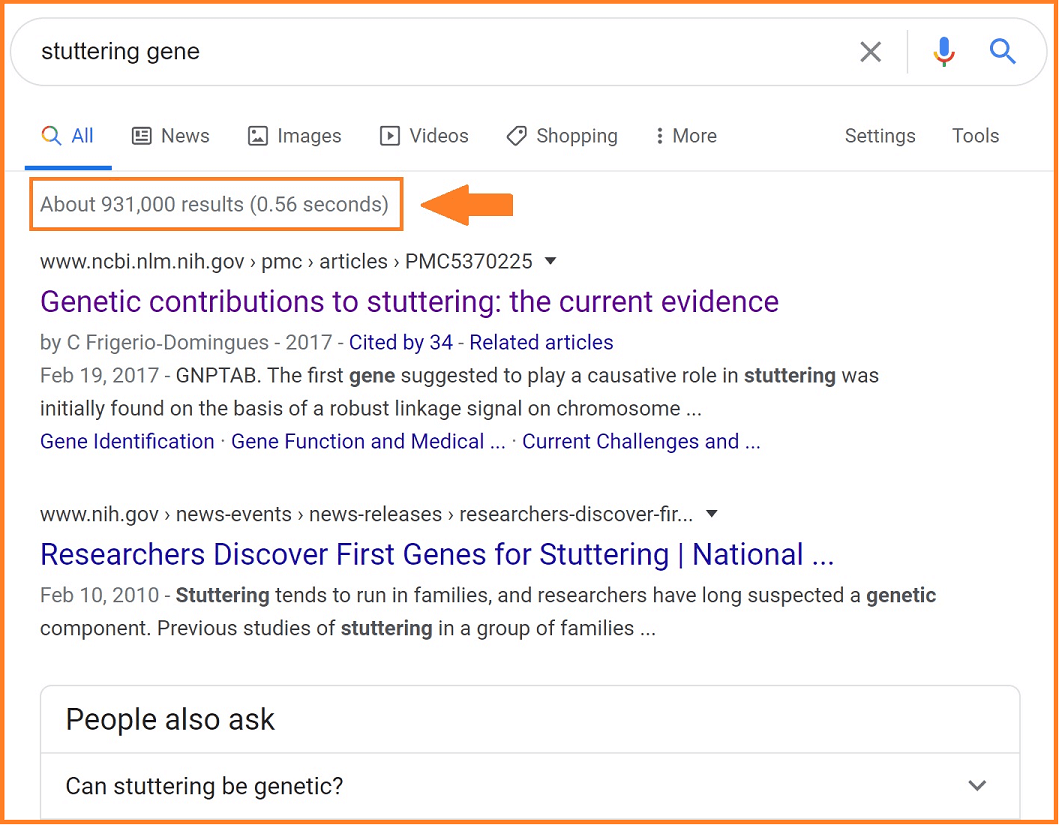What is acceptance based therapy, really? And what role does it play in speech therapy? In this article, we begin tunpack the complexities around acceptance and progress.
“So, how has speech stuff been this week?”
I was working with a client who stutters, a college student. It was the beginning of the school year, a season of transition and change that can often be accompanied by speech challenges.
“Pretty good, actually! I met someone else who stutters in one of my classes, and he recommended this book. It’s called The Stuttering Cure.* He said it helped him a lot. So I started reading it this week and doing some of the things. It’s definitely helping.” He paused. “Have you heard about this book?”
My licensed, certified, certificate-of-clinical-competence in speech-language pathology wheels were already turning. Have I heard of this book? Oh yes. More specifically, I’ve heard of the author. He is one of many self-styled “stuttering coaches” that live on the Internet. A person who stutters figured out a solution for himself, and he established a mini-empire helping others find the light.
Read moreStuttering most often begins in early childhood, during the preschool years. Studies typically define this as between the ages of two and five years old. While it can be alarming when a young child begins to struggle with speaking, most people know that this is relatively common among young children. Next steps are easy to figure out: talk to your doctor, consult a speech-language pathologist. In most cases, children will naturally recover without the need for therapy.
But what if a person starts to stutter when they are twelve? Fifteen? Nineteen? What’s that about? Stuttering doesn’t just happen suddenly to adolescents or young adults...right?
The short version: Yes, sometimes stuttering does start in adolescence-- even the late teen years. NO, this isn’t always psychogenic (a result of trauma) or neurogenic (result of a brain injury). Sometimes it’s just regular, garden-variety, childhood onset stuttering that decided to show up later than usual.
It can be tricky to track down information on the cause of a newly stuttering teenager. Families who find themselves in this situation can be panicked, seeking MRIs from neurologists to rule out brain tumors, and desperate for answers when the doctors say everything looks normal. This is not normal!
So. Let’s talk about this. Late-childhood onset stuttering.
Read moreThe first place I went for help regarding my stuttering was a psychologist. On the surface, it may not make much sense, but it made perfect sense to me. Sometimes I had difficulty talking, and sometimes I didn’t. I could say the words fine when I was by myself, but I would block on all of them when someone else was around. My stuttering caused and was caused by anxiety, frustration, embarrassment, and anticipation. It was a vicious cycle. Because of this, I fully believed the cause of my stuttering was psychological.
People who stutter often end up in the hands of psychologists, but should stuttering be discussed in psychotherapy? If so, how? What is the best counseling approach for people who stutter? How do you talk about it if you don’t know a lot about it?
It’s complicated. Good speech therapy for stuttering addresses the psycho-social components of stuttering. However, some people need additional support for other mental health concerns which may or may not be related to stuttering. Due to the significant life impact stuttering can have and the co-occurrence of depression and anxiety amongst people who stutter, it is common for folks to be in both psycho-therapy and speech therapy. The overlap between the role of a psychologist and the role of a speech therapist in stuttering can be tricky. Here are some dos and don'ts for psychologists to keep in mind when working with people who stutter.
Read more“You gain strength, courage, and confidence by every experience in which you really stop to look fear in the face. You are able to say to yourself, 'I have lived through this horror. I can take the next thing that comes along.' You must do the thing you think you cannot do.”
SLPs are masters of goal writing. We spend literal years learning how to write specific-measurable-actionable-relevant-time-bound goals. We craft robust, descriptive targets in the restrictive ecosystem of IEP, insurance, and Medicare requirements.
Most SLPs I meet are never satisfied with their goal writing. This is a good thing! It’s a sign of how seriously we take goals and therapy plans, that we are always seeking ways to improve.
In the spirit of improvement, there’s something I want to call attention to in our standard practice goal writing: ableism.
We’re taught to write goals a certain way (SMART, IEP-compliant, etc.). Unfortunately, that “certain way” (that we’re shamed for not following, when in graduate school) is rooted in ableism. As our field grapples with how social justice issues apply in a speech therapy context, we need to examine why we write goals and how we write goals.
So, let’s start.
Read moreOne of the most common refrains we hear in our sessions is, “I can’t be an X because I stutter” (or am autistic, or have language difficulties, or any other kind of communication challenge). X is whatever the person most wants to be. Often, it’s a career that involves speaking. Lawyer. Doctor. Teacher. Psychologist. Politician.
Well. It turns out you can stutter and people will still choose you to be the President of the United States.
Read moreby Alexander Whelan, MA, CCC-SLP
Each year, the stuttering community celebrates International Stuttering Awareness Day on October 22nd. People who stutter (PWS) all over the world take this opportunity to raise awareness and educate others about stuttering and to shine light on some of the “blind spots” and misconceptions that people have about stuttering.
As PWS know, stuttering is so much more than what casual listeners can observe during mundane, everyday interactions. As an example, PWS could experience twenty minutes of mounting anxiety while sitting at a restaurant waiting to order an entrée. If their order happens to come out fluently or mostly fluently, the server and everybody else at the table are completely unaware of the stressful moments that were just endured. Even when stuttering is directly observable, listeners only see a snapshot of the stuttering moment. All of the mental gymnastics that led up to that moment aren’t outwardly visible to listeners. Neither are the embarrassment, awkwardness, guilt at having caused awkwardness for the listener, frustration, and shame that sometimes follow stuttering moments.
Read moreIn our previous blog on education goals for speech therapy, we outlined some education-focused goals and activities for IEP students who are “over” speech therapy. Some students just don’t want to work on speech goals, and that’s perfectly fine! Empowerment is the second E in our 3Es model of stuttering therapy, and it’s another goal area you can work on to make IEP minutes that doesn’t involve speech goals.
It follows that while the student makes progress with empowerment, it might not look like progress on the outside: I had a parent come to me once, concerned that her 12 year old was stuttering more after coming to speech therapy for a few weeks.
“Great!” I said to mom. That is exactly where we want to be.
Uncomfortable and confused, mom wanted answers. I asked her,
- Is she talking more?
- Is she saying feared words, instead of avoiding them?
- Is she participating in class and/or social interactions more?
- Is she stuttering confidently?
Mom answered yes to all of these questions.
Read moreOn Thursday night, I shared joy with so many others around the country. We watched and listened to Brayden Harrington as he spoke openly about stuttering at the Democractic National Convention. He exuded confidence, eloquence, and charisma while showcasing his powerful voice. The next day, #BraydenHarrington was trending on Twitter.
It is difficult to describe in words how emotional and impactful this moment was for the stuttering community. Stuttering is one of the oldest-known human experiences, dating back to Greek philosophers and Old Testament figures. Despite this history, stuttering continues to be misunderstood and miscategorized, with discrimination faced daily by people who stutter.
Brayden was a sign that maybe now, in 2020, things are finally different. Members of the stuttering community and professional community have joined forces for decades to educate the public, dispel harmful myths, and advocate for the rights and dignity of people who stutter. Could a Presidential candidate, and his 13-year-old friend, be a sign that this has finally paid off?
We all thought so, but the New York Times proved otherwise.
Read more
Chicago, IL
312.870.0352

Chicago, IL
312.870.0352

8 S Michigan Ave Suite 812
Chicago, IL 60603
312.870.0352

8 S Michigan Ave, Suite 812
Chicago, IL 60603
312.870.0352







